YCC Lawyer’s Book Calls for Ideological War, Spiritual Violence, and a “New, Postmodern Constitution”
December 14, 2017
Erick Kaardal, the attorney representing the EHS Young Conservatives Club in their lawsuit against Edina High School and the Edina Public School District, is well-known in the Minnesota legal community. On his website, Kaardal boasts about “participating in over one hundred public law cases representing parties opposed to the government, government agencies and government bureaucrats,” and in the past three years he has brought suits against the Minnesota Department of Natural Resources and at least three school districts (St. Louis County, Washington County, and Sibley East).
To discover why Kaardal is so keen on opposing government institutions, one needs look no further than his book The Rebirth Constitution (self-published, 2013), in which Kaardal and his co-author, Thomas Dahlberg, propose ideological “war” and the writing of a “new, postmodern constitution.” They say this process will begin with force, and advocate that individuals sow discord in society, writing, “Neopopulism does not propose debate…but war.” More specifically, Kaardal proposes a “consummate war,” a war on all means of cultural production that includes “overt intellectual and moral disobedience of the establishment.” After this war, he predicts there will be a period of “intellectual and cultural chaos,” and then “orthodox Christianity will emerge as the dominant cultural force.”
In the second half of the book, Kaardal and Dahlberg propose their new constitution, in which personal freedoms are not guaranteed by the government and, notably for the EHS case, the government would have no involvement in education. Further, their proposed constitution limits the number of non-Christian and non-Jewish citizens to 15 percent of the U.S. population.
Kaardal’s ideas are built upon the premise that the U.S. Constitution is flawed and ought to be replaced. He argues that because the current constitution allows for multiple interpretations it is a weak document, insisting that “We cannot get people to agree on the ‘facts’ which otherwise divide them, without converting them to the same tradition.” This conversion, he indicates, will occur “when a single tradition dominates a culture through democratic, spiritual warfare (preaching, prophecy, and every form of voting—e.g. removing our children from the government schools.)”
The views Kaardal expresses in his book contrast with his statements against the Edina School District and his defense of the YCC, which appear to indicate that Kaardal wishes to defend both the (existing) Constitution and open debate. In the YCC’s press conference last week, Kaardal claimed, “The First Amendment also requires you to honor the free speech of those people who would disagree with the protesters, who would disrespect the protesters.” Yet in his book, Kaardal claims, “The time for debate is over. Now is the time for real preaching…real prophecy…civil disobedience, spiritual violence.”
Beyond his book, Kaardal’s previous casework also offers relevant insight into his world view. Last year, he garnered attention for defending a mother who sued her own transgender daughter over her gender reassignment surgery, even after the 17-year old had filed a notice of emancipation from the mother. In a press conference, Kaardal repeatedly referred to the teenager as male, even though the teen had already transitioned to female. The case was ultimately dropped. He has also represented companies who don’t provide birth control for religious reasons, an Orono resident who sued the city over a ban on wind turbines, and Wabasha County residents who sued the county over a program that offered to throw out traffic tickets for drivers who pay to take a safety course.
If Kaardal’s writings and casework are indicative, the EHS YCC case will be challenging for the attorneys representing Edina Public Schools, Edina High School, and Principal Beaton, since Kaardal has stated that he operates by his own legal assumptions and likely his novel constitutional theories, as he articulates in his book. When asked about their attorney’s non-conventional views on the U.S. Constitution, members of the YCC declined comment.
Kaardal’s past casework and writings give important context for the YCC case in particular. In their postmodern constitution, which Kardaal and Dahlberg unveil near the end of their book, education in particular is singled out. “No unit of government shall establish schools,” they write, “except for the purpose of training for government jobs…There is only one form of slavery appropriate in the postmodern age—enslavement of the state.” They continue, “We will separate the state from all education and teach the people to ride roughshod over their government.”

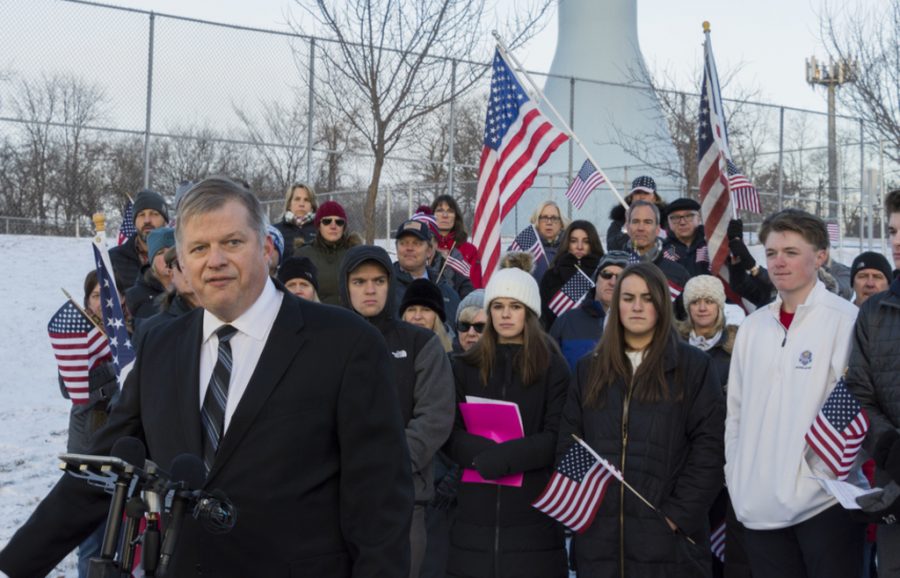



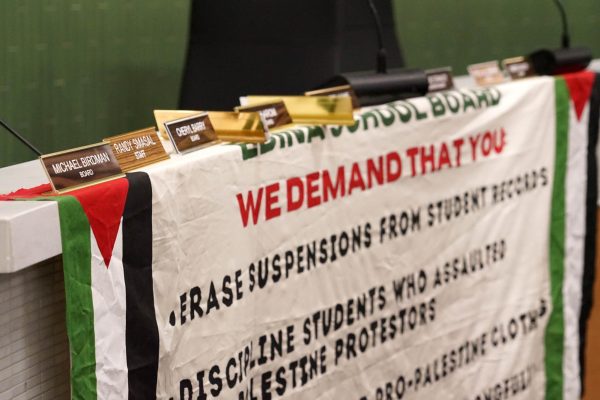
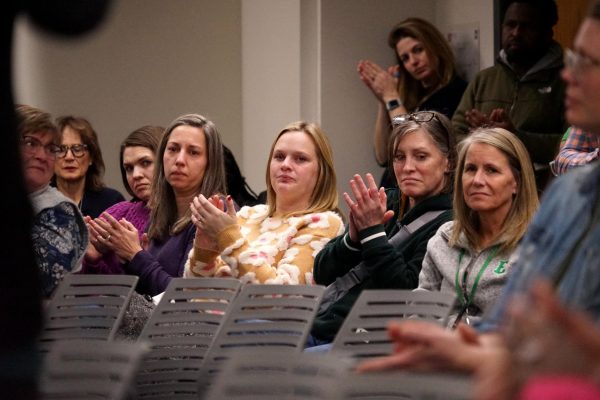

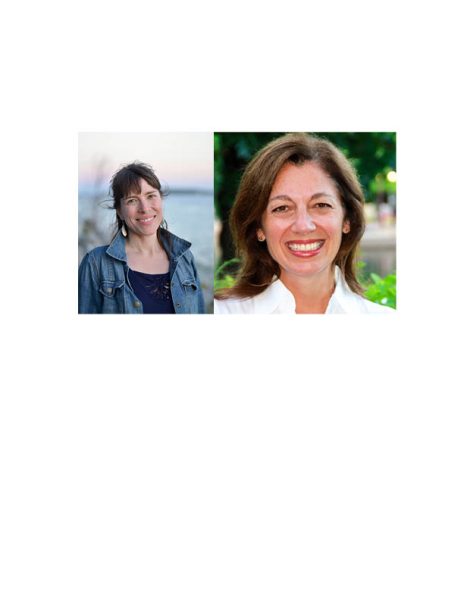

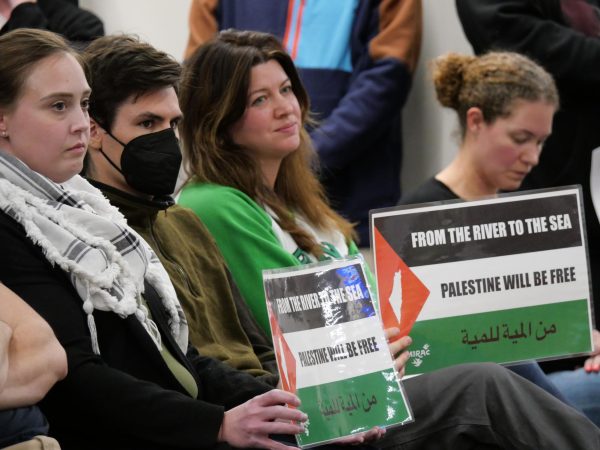
Julie McMahon Mahoney • Sep 21, 2018 at 8:41 am
dynamic duo expose the truth and agenda of adults using kids?! scary.
Steve Timmer • Dec 17, 2017 at 11:42 am
While I have people’s attention – at least some of you – there is one other thing I wanted to write about the Veterans’ Day protest at the high school. From my earlier comment, I hope it is obvious that I think that the district’s recognition of the right of students to protest was the right one. I have to admit, though, that I found the protest of the playing of Taps, based on a bugle call known as “Extinguish Lights,” was sour to me.
When I was the age of the students at Edina High School, and for a handful of years, I played Taps at the military funerals in the little town where I was raised. Scores of funerals for WWI, WWII, and Korea vets. In the heat, cold, wind, rain, and snow. It impressed me that there was always an honor guard of aging vets there to fire the ancient rifles and present the flag to the family.
My own father was there the day that the death camp at Buchenwald (which means beautiful woods) was liberated. He was a military policeman and spent several weeks there assisting the camp internees. I am as proud as I can be of Dad’s military service. So are my sons, both EHS graduates. If I remember correctly from the reporting (it may have been at another Veterans’ Day event), there was a veteran at the assembly who also participated in the liberation of Buchenwald.
When we buried Dad, almost twenty years ago now, there was an honor guard of old vets there and one of them presented my sister and me with the flag from his casket. They played Taps, too. This was moving to me.
I would like to ask that people pick their targets of protest carefully and recognize that respecting the sacrifice of veterans is not the same thing as agreeing with the policies of the United States. Vets didn’t and don’t always agree with them, either.
Janet Traylor • Dec 19, 2017 at 7:48 pm
Good comments, Steve Timmer. Calm, rational, heartfelt and respectful.
Tom Nassau • Dec 16, 2017 at 11:30 pm
It’d be really nice if people—left, right, center, whatever—could stop “protesting” things all the time and get to work. Stop tearing things down all over the place and build something. Strong societies and cultures are built on hard work and ingenuity, not whining about how this-and-that upsets you, or about who the country properly “belongs” to, or about how to make things more comfortable for you. This isn’t Nerf World. The Kardaal’s of the world build nothing. They only tear down. Same thing the Michael Moore’s of the world. They are dividers. What we need today are builders. I hope Edina produces a few.
Jeg • Dec 15, 2017 at 7:48 pm
Yet another article written by an adult and claimed by this student who is in his way to an Ivy League college to continue being manipulated by the pc libtards. Great job EHS! Have you people noticed that families are actively looking to pull their kids out of the district?
Steve Timmer • Dec 15, 2017 at 5:14 pm
Erick Kaardal has indeed handled many cases involving right-wing causes. If you follow them, though, you know that his successes are many parallels of latitude south of the cases filed. I offer that not as a particular criticism of Mr. Kaardal, but rather to say there is a big difference between filing a complaint and winning a case. And he’ll have some problems with this one, too.
Start with an understanding that Kaardal makes the claim that the YCC students’ First Amendment rights were violated because they were punished for being disruptive over the non-disruptive exercise of First Amendment rights by other students; according to the Sun Current article just published, Kaardal admits this.
The complaint cites the case of Tinker v. Des Moines School Board. Here is a good summary of that case:
https://www.oyez.org/cases/1968/21
You can be sure that the lawyers for the school district will cite Tinker, as well. But when you represent the original source of the “material and substantial” interference with the operation of the school (see the link above), you were at the back of the line when the clients were handed out.
Kaardal tries, I think, to overcome this problem by saying that it was illegal for the school district to permit the non-disruptive protest at the assembly. He relies on the US flag code for this proposition. In court, I would have to call that argument specious; here, I can just call it silly. According to him, the district is required to stand all students up against the wall and make them recite a loyalty oath to the United States. Seems a little authoritarian, doesn’t it? Well, it would be if the flag code was enforced or enforceable as law. It isn’t.
Tinker and the First Amendment require the district to permit the non-disruptive protest at the assembly, and Tinker authorizes the discipline for what the YCC students did thereafter.
Beth Russell • Dec 15, 2017 at 4:29 pm
Great article! Good investigative work!
GSD • Dec 15, 2017 at 9:07 am
Thank you for your insightful article. It is so nice to see such in-depth research that represents facts to inform all of us in the community.
Andrew • Dec 15, 2017 at 8:33 am
Fantastic reporting.
– An impressed teacher
Clover Graham Hackett • Dec 14, 2017 at 10:59 pm
Excellent writing. If you are interested in pursuing a career in journalism, I have some contacts that I would love to hook you up with. Thanks again for the research and insight you brought to the article, and for keeping us all informed. Keep up the good work!
Matt • Dec 14, 2017 at 11:20 pm
Really great digging!
-A proud Zephyrus alum
Emily • Dec 14, 2017 at 8:41 pm
You kids are shining stars!
Really good quality research and compelling reporting.
Signed,
An Impressed Parent
Jay • Dec 14, 2017 at 7:28 pm
More liberal propaganda. If anything his book is a reason to sid with teh YCC. LIBERAL PCness is getting in the way of good laws we need. It makes no sesne that ANY muslim who wants can enter America. Go Kaardal!
James • Dec 14, 2017 at 1:19 pm
Another wonderful piece from Tanner. You may be single-handedly keeping our community sane.
Joseph • Dec 15, 2017 at 1:23 am
The two best articles on Zephyrus and he’s going to an ivy league university. Hard to beat him.